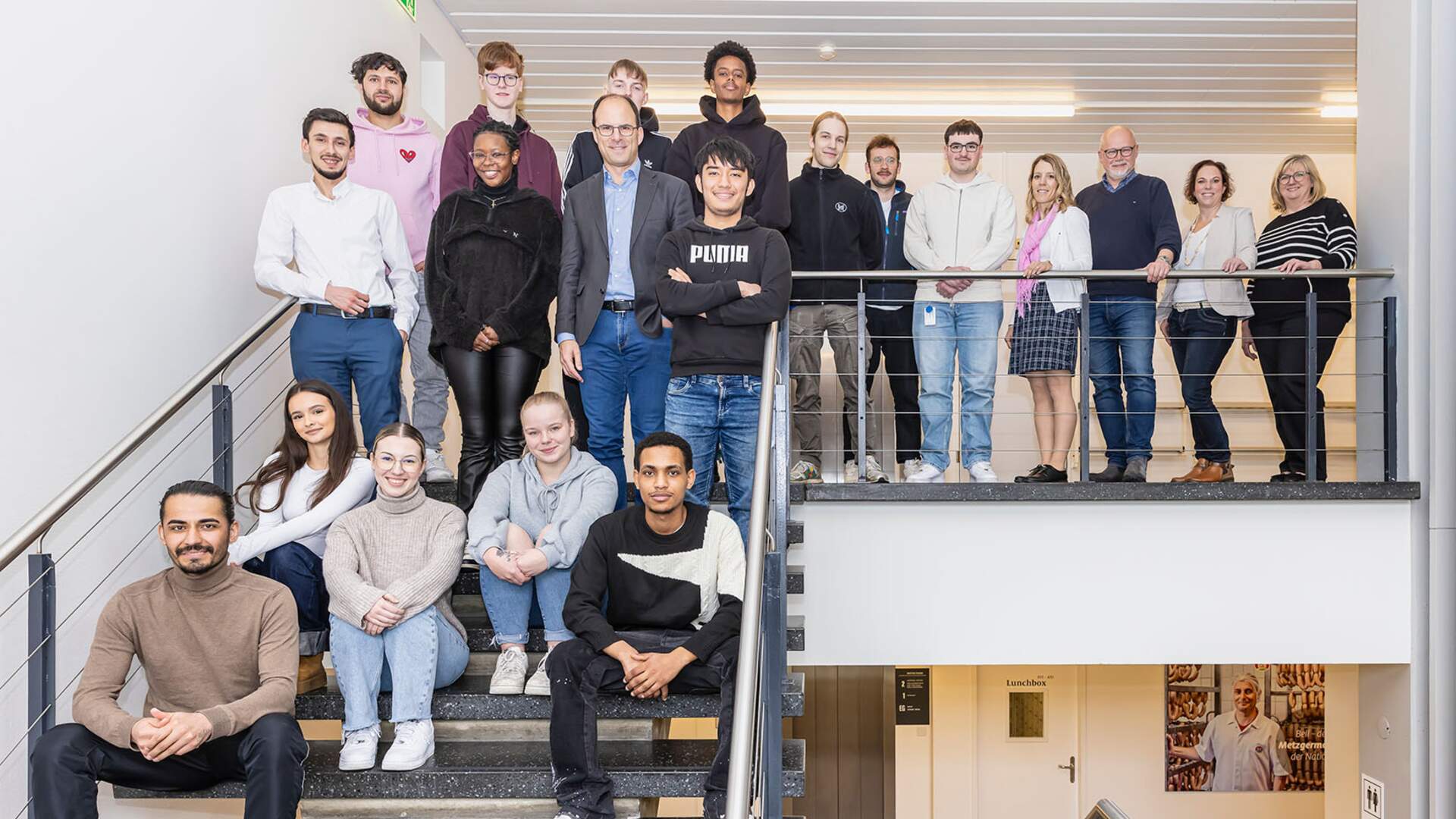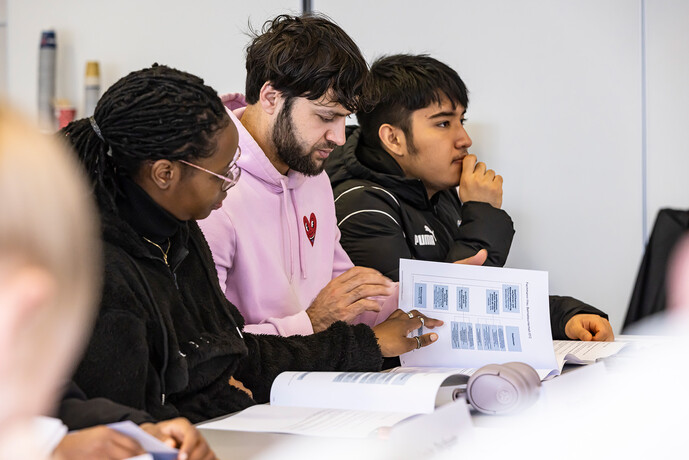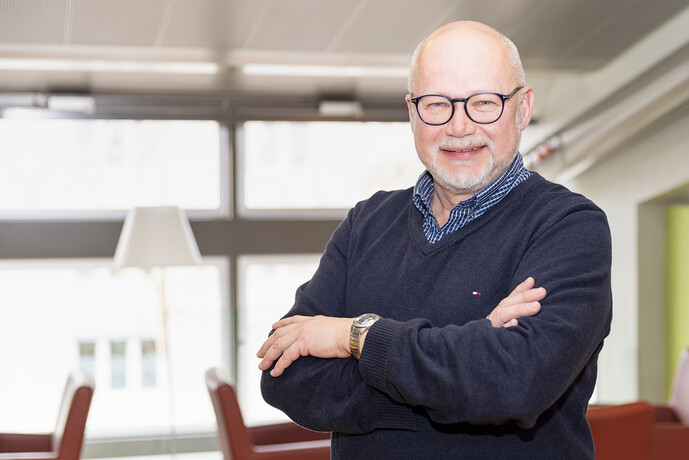Done with learning? Not at all!

No jumping in at the deep end:
The continued employment event provides trainees with a range of information topics about what happens after they have completed their vocational training, from practical tips on preparing for the final exams, the next steps in the consolidation year and possible career paths within the company, to organisational tips such as changes to pension contributions. Andreas Begré, Head of Vocational Training at Bell Switzerland, will host the event and will be supported by Rahel Michel, Vocational Training Coordinator, and Simone Thommen, Head of Vocational Training at the Basel site.
How to prepare for an exam:
Almina Bosnic and Egzona Dermaku provide the group with practical tips from the exam preparation course they attended a few days earlier. It is about the pillars of resilience, learning types and document templates to create learning plans.
Personal commitment pays off:
Samantha Leuenberger, who successfully completed her commercial apprenticeship two years ago, talks about her experiences. In the last year of her training, she had the opportunity to stand in for a colleague for several months and act as an assistant. A unique opportunity that Samantha seized – and which
paved the way for Samantha’s current work as an administrator in the production management assistance team. Samantha’s example is impressive: if you want to get ahead, you have to want to get involved and seize opportunities when they arise.
A murmur goes through the group:
Andi informs the apprentices that they will no longer benefit from seven weeks’ holiday after completing their apprenticeship and «only» have five weeks’ holiday as a qualified professional. They will also have to do without some of the benefits that were previously available to them.

From the school desk to the executive chair:
CEO Marco Tschanz also spends an hour with the apprentices. He talks about his own day-to-day work and answers questions about his own career, dealing with stress and the corporate culture. Artificial intelligence is also discussed and the question of how it can support companies in the future. Marco emphasises that the Bell Food Group will always be dependent on well-trained specialists, but that artificial intelligence can provide support in the workplace.
A high goal:
Finally, Andi asks the group what final grades they want to achieve. The participants take it in turns to mark their desired final grade on the scale. The result shows how ambitious the learners are. All that is left to say is – good luck to all of you!

Three questions for Andreas Begré
On average, how many apprentices stay with the company after completing their training?
We are constantly expanding the opportunities for continued employment. For example, we now also support training with the part-time vocational baccalaureate (BM 2). This makes continued employment at Bell more attractive for apprenticeship graduates. As a rule, graduates are very happy to make
use of the programme, with an average of more than 80% of the employees at Bell Switzerland doing so.
How can we ensure that young professionals stay with the
company for as long as possible?
We already integrate the employee appraisal in the consolidation year so that employees remain on the radar. Close cooperation between vocational training, HR business partners and line management is very important to ensure that young employees do not drop out after their year of consolidation. We still have a lot of potential to realise.
What role do such events play?
It is very important to bring the young people together again before the exams and to show them the community. They realise that they are not alone and that there are others who are in the same boat. And the appreciation of our CEO is also invaluable.
